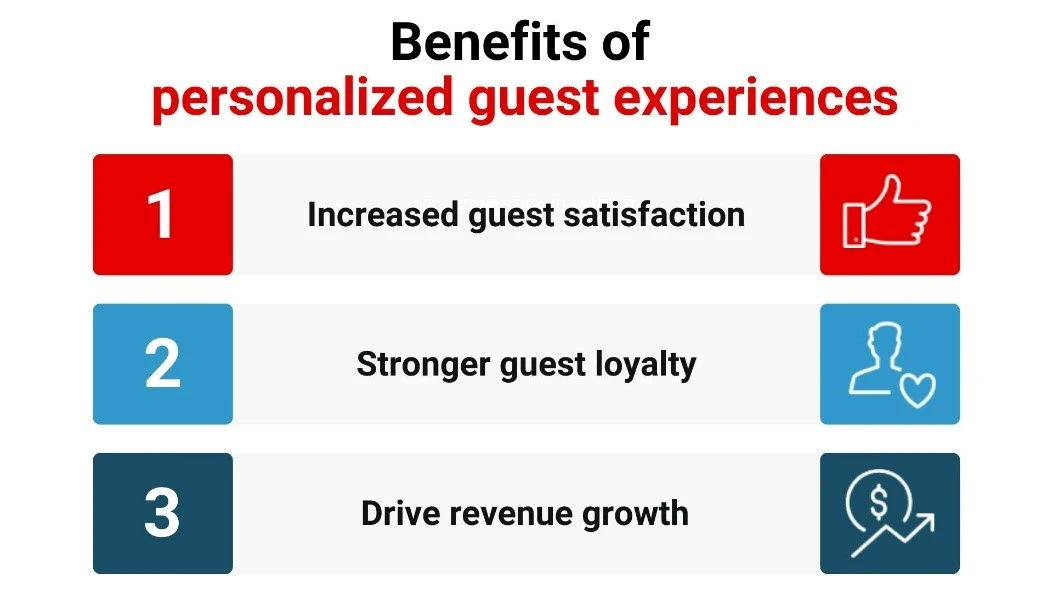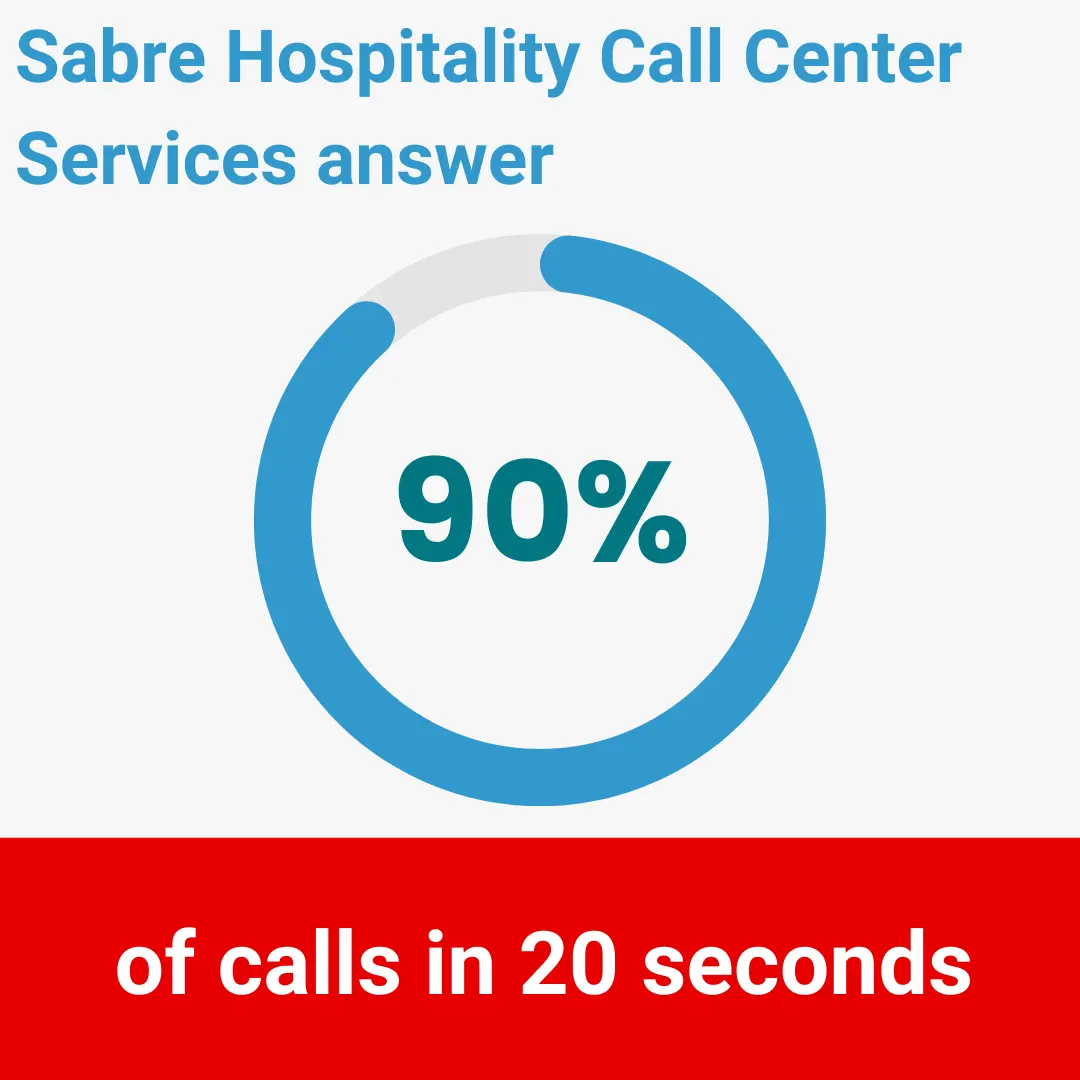Key takeaways
- Use dynamic pricing tools to adjust rates based on real-time demand
- Diversify revenue streams by offering ancillaries
- Foster repeat business through a loyalty system
- Host events and leverage unused hotel facilities
- Implement green practices to attract eco-conscious travelers and reduce costs
Strategies to increase hotel revenue
The hospitality industry continues to evolve, requiring hoteliers to adopt innovative strategies to stay competitive and maximize revenue. With exciting new technologies and shifting consumer behaviors, 2025 presents unique opportunities for growth. To help you navigate this dynamic landscape, we’ve identified the top 10 strategies to increase your hotel revenue in 2025:
1. Real-time pricing adjustments
To maximize occupancy and effectively respond to market changes, dynamic pricing plays a crucial role in ensuring that room rates remain competitive and are adjusted based on real-time demand. Benefits:
- Maximized revenue: leverage higher rates during peak periods and attract more guests during off-peak times with lower, enticing rates
- Improved occupancy: fill rooms more consistently by adjusting prices to meet demand
- Enhanced competitiveness: stay ahead of competitors by offering rates that reflect current market conditions
To implement dynamic pricing, take advantage of advanced revenue management tools to analyze a wide selection of data points. You can use those data points to optimize pricing strategies based on rea-time demand and market data. By employing this tactic, hotels can adapt to market conditions, increase their appeal to potential guests, and ultimately boost revenue and operational performance.
2. Leverage hotel retailing
Expanding into retailing allows hotels to go beyond traditional room bookings and offer a variety of products and services directly to both guests and non-guests. Retailing in the hotel industry involves selling ancillary items such as:
- Spa treatments
- Dining packages
- Local tours
- Transportation
- Room upgrades
- Other amenities that enhance the guest experience
Selling to non-guests is also now also made possible with SynXis Retailing, allowing hotels to retail anything related to trip-spend to non-guests, reaching a wider audience and capturing more spending opportunities. By incorporating retailing, hotels can diversify their revenue streams and capture additional income from services that travelers are already looking for. Utilizing programs like Google Performance Max for travel goals, paid search, or Metasearch can simplify the process and even helps you track data-driven KPIs. Retailing can also be implemented into your hotel’s current marketing strategies, appealing to guests searching for specific amenities and experiences in your hotel’s location. Someone who may not have stayed at your hotel initially could see your offerings and be influenced to book with you.
3. Implement a loyalty program
Loyalty members contribute between 30 and 60 percent of room revenue and tend to pay higher average daily room rates
Skift 2022
Implementing a loyalty program is a powerful strategy to boost a hotel’s revenue by fostering repeat business and cultivating guest loyalty. Spread the word about your loyalty program through social media channels, digital marketing efforts, and word-of-mouth in your hotel! Offering a rewards system where guests earn points for stays and other purchases allows hotels to provide enticing benefits such as future discounts, free nights, and exclusive perks. However, these programs go beyond simply earning points and giving away freebies; they are about building valuable, lasting relationships between hotels and their guests.
4. Focus on personalized guest experiences

In today’s age of heightened consumer expectations, personalization is crucial. It differentiates a hotel from its competitors and creates memorable stays that encourage repeat business. Personalizing guest experiences means tailoring services and offerings to meet the individual preferences and needs of each guest. The benefits of personalization are substantial: it leads to increased guest satisfaction, stronger loyalty, and, ultimately, higher revenue.
Hotels can personalize experiences by leveraging data to understand guest preferences and offering personalized amenities and services. Certain programs can leverage guest profile data to provide AI recommendations, creating more personalized offers that resonate with each guest’s unique preferences and needs. By tailoring these offers, hotels can significantly improve guest satisfaction and loyalty, driving repeat business and increasing revenue. Gift cards also allow recipients to choose their own experiences to further add a personal touch, making guests feel valued and more likely to return. By investing in personalization, hotels can create unique and memorable experiences that drive guest loyalty and increase overall profitability.
5. Diversify your distribution channels
Distribution channels are the various platforms and methods through which hotels sell their rooms and services, including online travel agencies (OTAs), direct bookings through hotel websites, and global distribution systems (GDS). By diversifying these channels, hotels can:
- Reach a broader audience
- Reduce reliance on any single source
- Capture more bookings
- Collect better data and insights
- Maintain consistency across platforms
6. Enhance your food and beverage offerings

Expanding food and beverage (F&B) offerings can significantly boost revenue by attracting more guests to dine on-site, increasing the average spend per guest, and drawing in local patrons. Enhancing your F&B (food and beverage) offerings as a hotel involves expanding and diversifying the dining experiences available to guests. Here are some effective strategies to achieve this: Enhance room service
- Premium in-room options: offer luxury items like champagne or curated dining experiences directly to guest rooms
Offer unique dining events
- Exclusive experiences: host events such as afternoon teas for non-guests or seasonal celebrations like Mother’s Day brunches
Showcase your F&B on social media
- Give your followers an inside look at what they could be eating while staying at your hotel
Create memorable dining experiences
- Theme nights: Introduce themed dinners or tasting menus to provide guests with unforgettable culinary adventures
Expand profits through retailing
- Retail opportunities: develop ancillary revenue streams by offering food-related products like gourmet snacks, local delicacies, or branded merchandise.
By diversifying and elevating your F&B offerings, you can enhance guest satisfaction, increase overall revenue, and establish your hotel as a sought-after dining destination.
7. Invest in delivering exceptional customer service
Investing in exceptional customer service means creating outstanding guest experiences at every interaction. This involves not only providing high-quality service but also ensuring that all staff have the skills and tools needed to exceed guest expectations. Here are key elements of delivering exceptional customer service:
- Effective communication: Ensure clear communication with guests and staff
- Prompt problem solving: Empower staff to problem solve on the spot
- Personalized attention: tailor services to guest preferences
- Continuous training: equip staff with ongoing development processes
Providing superior customer service has been taken to the next level with generative AI tools. Hoteliers can leverage systems like SynXis Concierge.AI to provide immediate and accurate responses to guest queries. Task management programs also serve as a great tool for staff to manage and track tasks like housekeeping, deliveries, and more. Not to mention, guests will be influenced to leave positive reviews for your hotel online by providing top-of-the-line customer service. Help further the impact of these positive reviews by replying in a timely manner and engaging with happy customers. By fostering a culture of excellence and incorporating innovative solutions, hotels can significantly enhance their service offerings, driving higher occupancy rates and more frequent bookings.
8. Host events and experiences
Hosting events and experiences, such as weddings, conferences, local gatherings, and unique activities like cooking classes and wine tastings, can significantly boost a hotel’s revenue by leveraging its facilities beyond traditional room bookings. This approach is important because it allows hotels to tap into additional revenue streams and attract a diverse range of customers, including local residents and event organizers. Benefits of hosting events:
- Increase occupancy: boost room bookings during event periods
- Higher F&B sales: drive additional revenue through catering and on-site dining
- Enhanced brand visibility: attract more guests through event publicity
- Monetizing underused space: use retailing to transform underused areas by offering them for events and experiences
Hosting events is also a great way to generate User Generated Content (UGC) for your hotel on social media. How many times have you seen an Instagram story of someone’s wedding venue? Probably a lot. By taking time to reshare posts made by event coordinators and attendees, followers can see what you offer event-wise. By strategically using space and promotional tools, hotels can maximize their revenue potential and enhance their appeal as versatile destinations.
9. Optimize revenue management
Optimizing revenue management involves using advanced tools and strategies to maximize a hotel’s profitability by fine-tuning pricing and inventory. This approach is crucial because it ensures room rates and availability are adjusted in response to market demand, seasonal trends, and competitive pressures. By doing so, hotels can enhance their revenue potential and maintain a competitive edge. Benefits:
- Increased revenue: maximize profitability through strategic pricing adjustments
- Improve demand forecasting: accurately predict market demand and plan accordingly
- Effective rate management: adjust rates in real-time in response to market conditions
10. Sustainability initiatives
The hospitality industry is responsible for approximately 1.6 billion tons of food waste each year
World Wildlife Fund
Implementing sustainability initiatives can reduce operating costs and attract a growing segment of environmentally conscious travelers. Here are some ways to integrate sustainability into your hotel operations:
- Reduce paper use: embrace recent digital and utilize technology servers
- Reduce water consumption: reduce the amount of towel and linen changes per room to reduce laundry and implement regular water tracking and low-flow toilets
- Reduce food waste: donate leftover food to local shelters and charities
By integrating these sustainability practices, hotels can enhance profitability through cost savings and attract eco-conscious travelers. This approach builds a strong brand reputation, increases occupancy, and ensures long-term success in a competitive market.
Next steps:
- Implement dynamic pricing tools: Invest in advanced revenue management software to adjust room rates in real-time based on demand and market conditions
- Develop a loyalty program: Create and market a loyalty system that rewards repeat guests with exclusive benefits, fostering guest retention
- Expand ancillary services: Introduce and promote additional services such as spa treatments, dining packages, and local tours to diversify revenue streams
- Optimize distribution channels: diversify and manage distribution channels, including OTAs, direct bookings, and GDS, to reach a broader audience and increase bookings
- Adopt sustainable practices: Implement eco-friendly initiatives such as reducing water usage and food waste to attract eco-conscious travelers and reduce operational costs
Related articles:
- Top 10 Best Practices for Effective Hotel Operations Management
- 5 Tips to Unlocking Hotel Excellence
- Hospitality and hotel marketing insights and trends « Sabre Hospitality
- Why hoteliers are moving on from dynamic packaging to SynXis Retailing
- The Concept of Attribute Based Selling (ABS) in Hospitality Technology
Written by Tiffany Lung
Retail Studio
Retail Studio provides hotel retailing solutions that help you Go Beyond filling rooms with endless opportunities to expand your offerings. Drive more conversions, expand your revenue, and differentiate your brand while creating more unforgettable moments for your guests.




